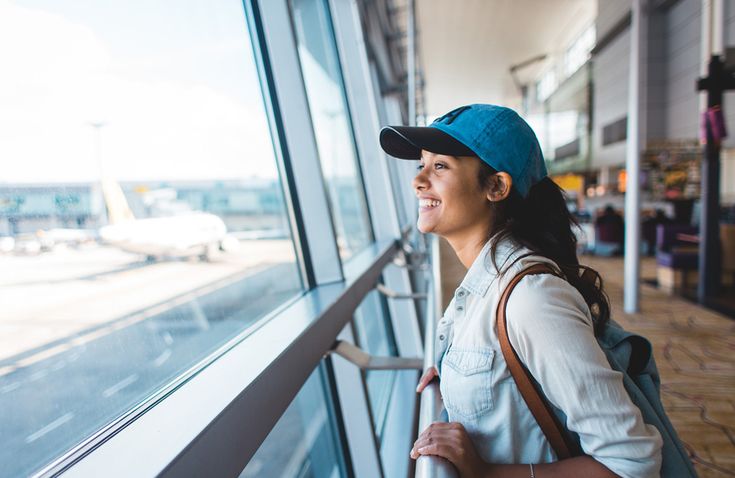Working Holiday Visas: Combining Travel and Work Abroad in Australia
Working holiday visas have emerged as a dynamic solution for young professionals, recent graduates, and adventure enthusiasts who wish to explore the world while gaining work experience. These visas offer an exceptional blend of travel, cultural exchange, and temporary employment opportunities, allowing individuals to immerse themselves in new environments while funding their journey abroad. In today’s globalized economy, working holiday visas not only foster personal growth and professional development but also contribute to the soft power of cultural diplomacy by promoting mutual understanding among nations.
This article provides an in-depth exploration of working holiday visas, explains the comprehensive application process, outlines the benefits and challenges, and offers practical tips for balancing work with travel. Along the way, we will also refer to related immigration topics to show how diverse visa programs share common principles and objectives. For instance, many of the step-by-step strategies needed here are somewhat aligned with approaches presented in From Work Visa to Permanent Residency: Long-Term Pathways.
Results
#1. What type of scholarship are you looking for?
#2. Do you have a visa for your destination country?
#3. What is your gender?
#4. What type of part-time job would you like to do?
#5. Do you prefer working remotely or in an office setting?
#6. Are you open to relocating for work or studies?
#7. How much would you like to earn per hour?
What Are Working Holiday Visas?
Working holiday visas are designed to allow young people—typically between the ages of 18 and 30 or 35, depending on the country—to enter a host country for an extended period, during which they may both travel and work. These visas are usually issued on a reciprocal basis, meaning that both the home and host countries offer similar opportunities. Participants receive the chance to explore different regions, gain exposure to various industries, and build cross-cultural friendships.
Eligibility and Key Features
To qualify for a working holiday visa, applicants must typically meet several criteria:
- Age Limits: Most programs are restricted to a specific age group.
- Financial Requirements: Applicants often need to demonstrate sufficient funds to support themselves initially.
- Health and Character: A clean criminal record and acceptable health status are essential.
- Reciprocity Agreements: Countries participate based on reciprocal agreements that allow similar opportunities for their citizens.
Working holiday visas differ significantly from standard work visas. Rather than being tied to a specific employer or skill set, they offer a flexible arrangement that encourages travel and short-term employment. This freedom allows participants to explore different career opportunities, making it an attractive option for many young professionals.
These programs are particularly popular among those who view travel as a form of education. The immersive experience not only broadens one’s cultural understanding but also hones interpersonal skills that can boost long-term career prospects. In certain contexts, the flexibility of these visas finds parallels with Securing Visa Sponsorship for International Internships, where the balance of work and learning creates a unique avenue for professional development.
The Application Process for Working Holiday Visas
The application process for working holiday visas is streamlined and, in many respects, more accessible than traditional work or student visas. However, successful applications depend on a clear understanding of the requirements and attention to detail throughout the procedure.
Documentation and Preparation
Candidates must prepare various documents, including:
- Proof of Funds: Bank statements or financial guarantees that verify sufficient funds for initial settlement.
- Travel Insurance: Many countries mandate comprehensive travel or health insurance for the duration of the visa.
- Valid Passport: An up-to-date passport with a minimum period of validity.
- Return or Onward Ticket: Evidence of departure plans from the host country.
- Application Forms: Completed forms that require personal information, travel history, and sometimes details about planned activities during the stay.
In addition to these core documents, applicants are advised to prepare supplementary materials such as a concise travel itinerary, letters of recommendation, or certificates of language proficiency if required. Some countries also request a short essay outlining the applicant’s motivation and intended activities during the working holiday period.
For those unfamiliar with language testing requirements in visa applications, the process is similar to guidelines outlined in Meeting English Proficiency Requirements (IELTS/TOEFL) for Visas & Scholarships, where clear communication and documentation are pivotal.
Submission and Processing
Once the documentation is complete, applicants submit their applications either online or at the consulate/embassy of the host country. Processing times vary widely, but most working holiday visas are processed within a few weeks to a couple of months. During this period, additional verification or interviews may be requested.
Applicants should be prepared for possible delays and maintain regular contact with visa authorities or authorized agencies. Detailed recordkeeping and a proactive attitude can help mitigate setbacks during this stage.
Benefits of Working Holiday Visas
Working holiday visas offer a unique array of benefits that extend far beyond the ability to work abroad. These benefits can be viewed through several lenses, including professional, personal, and cultural growth.
Cultural Exchange and Global Networking
One of the primary attractions of a working holiday visa is the opportunity for cultural exchange. Participants quickly become part of a global community, meeting people from diverse backgrounds and forging lasting friendships. This cultural immersion enhances global awareness and builds a network that can be invaluable in an increasingly interconnected world.
Such experiences often lead to a greater appreciation of cultural diversity, improved language skills, and the soft skills necessary to navigate multinational professional environments. In many ways, the process is reminiscent of the cultural integration seen in Leveraging Recruitment Agencies to Find Visa Sponsorship Jobs Overseas, where building bridges between different cultures plays a crucial role in success.
Professional and Personal Development
Working holiday visas allow individuals to gain direct work experience in a foreign setting. This experience is not only a resume booster; it also provides critical insights into international markets and workplace cultures that are increasingly valued by global employers. Temporary work assignments—whether in hospitality, tourism, or other sectors—build practical skills that enhance one’s adaptability and employability.
Moreover, these visas often afford participants the chance to explore various types of work, determine their professional interests, and sometimes even discover new career paths. This dynamic environment fosters creativity, resilience, and self-reliance, traits that are highly prized in competitive industries.
The practical aspects of balancing work and travel can be compared to strategies found in $60k Part-Time Work Opportunities While on a Student Visa, where strategic planning and flexibility become key components of success.
Practical Tips for Balancing Work and Travel Abroad
While the allure of combining travel and work is undeniable, it is essential to manage both aspects effectively to ensure a rewarding experience. This section provides practical tips to help working holiday visa holders strike the perfect balance.
Planning Your Itinerary and Budget
Before departure, it is crucial to plan both your travel itinerary and your budget. The itinerary should include:
- Major destinations you wish to explore.
- A tentative timeline for travel and work commitments.
- Cultural events or local festivals that you do not want to miss.
Budgeting, on the other hand, should cover:
- Daily expenses such as food, accommodation, and transportation.
- Emergency funds to cover unforeseen costs.
- Expenses related to work, like commuting or professional attire.
A well-structured plan not only maximizes your travel experience but also ensures that you have sufficient resources to handle work obligations seamlessly.
Work-Life Integration Strategies
Balancing travel with job responsibilities requires robust time-management and organizational skills. Some effective strategies include:
- Flexible Work Arrangements: Seek employers or temporary assignments that offer flexible hours or remote work options.
- Networking: Engage with locals and fellow travelers to discover hidden job opportunities that suit your travel plans.
- Local Resources: Utilize local job boards, social media groups, and community networks to stay informed about temporary job openings.
These strategies are essential as you navigate the dual demands of work and exploration. In this context, practices similar to those discussed in Changing Jobs While Holding a Sponsored Work Visa: Rules and Procedures can be adapted to fit the flexible nature of working holiday arrangements.
Challenges and Considerations
Despite the many advantages, working holiday visas come with their own set of challenges. Understanding these obstacles and preparing to address them is crucial for a successful journey.
Visa Limitations and Legal Considerations
Every visa program comes with inherent limitations. For working holiday visas, common restrictions may include:
- Duration Limits: These visas are typically valid for one year or a short period, with little scope for extension.
- Employment Restrictions: Some countries limit the type of work you can undertake or the number of hours you can work in a single employer’s capacity.
- Insurance Requirements: Comprehensive insurance is mandatory, and its cost can impact your overall budget.
It is essential to be fully aware of these limitations before embarking on your journey. Researching each host country’s specific rules and remaining compliant with all legal obligations is a non-negotiable aspect of the process. Being well-informed can be compared with the rigor required in Common Pitfalls in Marriage Visa Applications and How to Steer Clear, where knowing the rules makes all the difference.
Cultural and Social Integration
Adapting to a new country involves more than just meeting visa conditions—it requires embracing a different culture, understanding local customs, and sometimes overcoming language barriers. While the challenges of cultural integration are exciting, they can also be overwhelming at times.
To ease the transition:
- Participate Actively: Join local clubs, attend community events, and consider language courses.
- Seek Mentorship: Connect with expatriates or locals who have navigated similar experiences.
- Stay Open-Minded: Embrace cultural differences as learning opportunities rather than obstacles.
These tips help create a smoother integration process, ensuring that the working holiday experience enriches both your professional and personal life.
Additional Resources and Comparative Visa Programs
To offer a broader perspective on immigration pathways and related opportunities, the following tables provide structured overviews of complementary visa programs. These tables are organized into three categories that reflect the diverse aspects of international mobility, from marriage-based visas to student and employment routes.
Table 1: Marriage-Based Immigration Programs
| Topic | Focus Area |
|---|---|
| Fiancé(e) Visa vs. Spousal Visa: Which Path is Right for Your Journey to the USA? | Offers a comparative perspective on choosing between fiancé(e) and spousal visas based on relationship stages. |
| Essential Documentation for Marriage-Based Visas Worldwide | Details the documentation required for a smooth application process in marriage-based immigration. |
| Navigating the Marriage-Based Green Card Interview | Provides insights and preparation tips for the green card interview process. |
| Conditional Residency Through Marriage: Steps to Remove Conditions Successfully | Outlines the steps required to lift conditions on a marriage-based residency. |
| Impact of Separation/Divorce on Your Marriage-Based Immigration Status | Explores how relationship changes affect immigration status. |
| Financial Sponsorship Requirements for Spousal Visa | Discusses the financial criteria necessary to sponsor a spousal visa. |
| Same-Sex Marriage Immigration: Visa Options and Global Recognition | Reviews the visa options available for same-sex couples and international recognition. |
| Avoiding Marriage Fraud Accusations in Your Immigration Application | Offers guidance on preventing fraud accusations during the application process. |
| Bringing Dependent Children Through Marriage-Based Immigration | Examines the processes involved in including dependent children in your application. |
| Common Pitfalls in Marriage Visa Applications and How to Steer Clear | Identifies common errors in marriage visa applications and how to avoid them. |
Table 2: Student Visa and Post-Study Opportunities
| Topic | Focus Area |
|---|---|
| Pathway from Student Visa to Permanent Residency After Graduation | Explores how international graduates can transition from a student visa to permanent residency. |
| Securing Visa Sponsorship for International Internships | Provides strategies for obtaining sponsorship for internships abroad. |
| Community Colleges as a Gateway to University and Residency in North America | Reviews the role of community colleges in facilitating university admissions and residency. |
| Post-Study Work Visas: A Global Comparison for International Graduates | Compares work visa opportunities available to graduates in different regions. |
| Under-the-Radar Countries with Excellent Scholarship and Student Visa Programs | Highlights alternative destinations offering competitive scholarship and visa programs. |
| Top Reasons for Student Visa Rejections and How to Avoid Them | Reviews common reasons for visa rejections and provides guidance on overcoming them. |
| Health Insurance Essentials for International Students on Sponsored Visas | Details the insurance requirements for international students working under sponsored visas. |
| Extending Your Study Permit/Student Visa: Process and Eligibility | Outlines the steps and criteria for renewing a student visa or permit. |
Table 3: Employment-Based Immigration Opportunities
| Topic | Focus Area |
|---|---|
| High-Demand Occupations for Visa Sponsorship under Canada’s Express Entry | Identifies the professions that are in high demand for Canadian visa sponsorship. |
| Understanding the UK’s Skilled Worker Visa Points-Based System | Breaks down the points system used to evaluate applicants for the skilled worker visa. |
| Intra-Company Transfer Visas: Moving Globally Within Your Company | Discusses the procedures for transferring employees to international offices. |
| Startup Visa Programs for Entrepreneurs Seeking Residency | Reviews visa programs designed for innovative entrepreneurs looking to establish residency. |
| Global Opportunities: Visa Sponsorship for Teachers and Educators | Explores visa options available to educators for working internationally. |
| Understanding Labour Market Tests (like LMIA) in Work Visa Applications | Provides insights into the labour market tests required in many work visa applications. |
Strategies for Success on a Working Holiday
Embarking on a working holiday adventure requires more than just securing a visa. Success lies in proactive planning, continuous learning, and adaptable strategies. Here are some actionable recommendations to maximize your working holiday experience.
Setting Clear Goals and Expectations
Start by establishing clear personal and professional goals for your working holiday:
- Cultural Immersion: Identify key cultural experiences you wish to explore, such as local festivals, historical tours, or community volunteer work.
- Career Development: Decide what type of work will enhance your resume or provide skills beneficial for long-term career prospects. Temporary jobs in hospitality, tourism, or retail can offer valuable customer service experience.
- Networking: Build relationships with both locals and other international travelers. These connections can lead to unexpected opportunities, whether it’s a part-time job, a freelance gig, or even collaborations on creative projects.
Setting concrete goals not only helps in planning your itinerary but also provides a framework for evaluating the success of your journey. Many find that this structured approach mirrors the discipline required in programs such as Securing Visa Sponsorship for International Internships, where clarity of purpose is key to success.
Embracing Flexibility and Resilience
While planning is indispensable, the ability to adapt is equally important. Unforeseen changes—be it a sudden shift in work opportunities or unexpected travel delays—demand a mindset that is flexible and resilient. Cultivate these qualities by:
- Keeping an open schedule that allows for spontaneous decisions.
- Maintaining a financial buffer to manage emergencies.
- Regularly updating your resume and professional profiles to seize new opportunities as they arise.
Embracing a flexible approach means that challenges become learning experiences rather than setbacks. Such resilience is often compared to the adaptive strategies outlined in Changing Jobs While Holding a Sponsored Work Visa: Rules and Procedures, though tailored for the fluid dynamics of a working holiday.
Final Thoughts
Working holiday visas offer a unique window of opportunity for those eager to combine travel with work, build international networks, and foster personal growth. The journey—while filled with both rewards and challenges—equips you with experiences that transcend the conventional boundaries of traditional career paths. With comprehensive planning, a proactive mindset, and an openness to new cultures and opportunities, your working holiday can become a transformative chapter of your life.
The visa process itself, from meticulous documentation to rigorous application procedures, underscores the importance of precision and forethought. Whether you are budgeting meticulously for your travels, honing your professional skills through diverse work assignments, or exploring the vibrant cultural tapestries of a new country, each step contributes to an enriching and multifaceted experience. Moreover, the ability to adapt to changing circumstances and overcome challenges is as vital as any skill you bring to the workplace.
In navigating your working holiday, remember that this is not merely a break from routine—it is an investment in your future. The international exposure and professional insights gained during this period can pave the way for lifelong career opportunities and personal fulfillment. As you explore new horizons, maintain a balance between your professional obligations and the spirit of adventure that first led you to apply for a working holiday visa.
Whether you plan to stay on for just a season or use the experience as a stepping stone for further international opportunities, the memories, skills, and networks you build will serve as a lasting legacy of your journey abroad.
Conclusion
Working holiday visas are far more than temporary permits—they are doorways to adventure, career development, and cultural exchange. They embody the modern ethos of work-life balance and provide a fertile ground for personal reinvention in an increasingly interconnected world. With clear guidelines, rigorous preparation, and an adaptable mindset, you can make the most of the myriad opportunities that await overseas.
As you move forward with your plans, remain informed by reliable resources, seek advice from experienced professionals, and remember that each challenge encountered is an opportunity for growth. May your working holiday be a rewarding expedition that inspires not only professional advancement but also a deeper understanding of the world we share.
Embrace your journey with enthusiasm, and let every experience enrich your life both personally and professionally.









